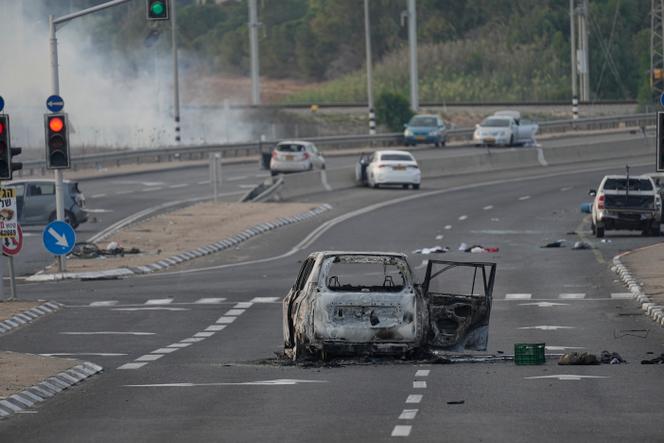


Among the Israeli leaders to whom the security disaster of October 7, 2023, is attributable, whether at the head of the army, the intelligence services or among political authorities, Major General Aharon Haliva is the first to take the plunge. On Monday, April 22, the head of Aman, Israel's military intelligence directorate, tendered his resignation to the chief of the General Staff. In it, Haliva stated his desire to be dismissed from his current duties to leave Israel's army and to see a commission of inquiry established to look into the causes of the attack carried out by Hamas.
The major general, like other security officials, has never made a secret of his responsibility for the attack, which resulted in the death of almost 1,200 Israeli people and the capture of 250 others (now down to 129, some of whom are dead). The Hamas attackers had been training for months inside the Gaza Strip, rehearsing their maneuvers in full view of some of the soldiers deployed around the territory, but without triggering any higher-level alerts.
"The intelligence division under my command did not live up to the task," wrote the major general somberly, adding, "I have carried that black day with me ever since (...) I will carry the horrible pain of the war with me forever." The senior officer will continue to perform his duties until he is replaced.
In the wake of October 7, the resignation of the heads of Israel's security establishment was considered inevitable; but not a matter of urgency, since the most pressing need was to carry out a military operation in Gaza. Security officials' expressions of contrition, meanwhile, were met by silence from political leaders. Prime Minister Benjamin Netanyahu has so far evaded the question of his responsibility, arousing the fury of a segment of the population that has considered him to be the chief architect of the disaster. Of all the resignations to have been put on hold since October 7, the first to come to fruition is that of the head of military intelligence. It could well lead to others.
Major General Haliva is one of the leading figures involved in the failure of the system to anticipate the threat posed by Hamas. The blindness that presided over the catastrophe was structural. No Israeli intelligence source had sounded the alarm. A text detailing the broad outlines of the attack had come into Israeli's possession a year before October 7. However, it had been dismissed as nonsense and filed away in a drawer. No warning had been heard, not even from the lookouts at the Nahal Oz base near Gaza.
You have 51.28% of this article left to read. The rest is for subscribers only.
